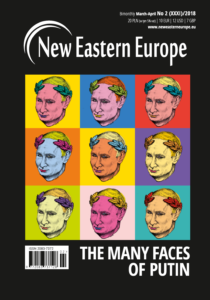
Levada
Polling shows that support for Vladimir Putin is slipping, and for the first time in 13 years, a plurality of Russians think their country is moving in the wrong direction. Far removed from urban activists who protest government autocracy, public opinion has shifted most sharply in provincial areas, where Mr. Putin’s popularity has stemmed from economic gains as much as from national pride, the New York Times reports:
A late January poll by the Levada Center, an independent Russian polling organization, showed that 45 percent of Russians thought the country was headed in the wrong direction, while 42 percent thought its course was correct, a sharp downturn from a year earlier. Approval of Mr. Putin’s job performance stands at 64 percent, with disapproval at 34 percent. Any Western politician would love such numbers, but a year ago, the Russian leader had an 80 percent approval rating.
“There is more displeasure expressed in the provinces, which were the foundation of Mr. Putin’s support,” said Lev D. Gudkov, director of the Levada Center.
 According to new Levada data, 41 percent of Russians between 18 and 24 years of age would like to leave the country and seek permanent residence abroad, the Moscow Times adds.
According to new Levada data, 41 percent of Russians between 18 and 24 years of age would like to leave the country and seek permanent residence abroad, the Moscow Times adds.
Putin, who is facing a steep drop in approval ratings and a slew of angry public protests across the country, spent the majority of his state-of-the-nation speech proposing a sweeping investment to improve declining living conditions at home, the LA Times reports:
About 13%, or 19 million, of Russia’s 147 million people live below the poverty line of $160 a month, Putin said. The government reported that Russia’s living standards and real incomes decreased by 11% during the last four years. Putin, 66, was reelected in 2018 to a fourth six-year term. But his public approval ratings have slumped significantly this year under economic sluggishness, a rise in poverty levels and inflation, and an unpopular pension reform program that would raise Russia’s retirement age.
 Russia’s long-standing quest for strategic depth, great power ambitions, and uneasy ties with the West have left an indelible imprint on Moscow’s foreign policy, say Carnegie analysts Julia Gurganus and Eugene Rumer.
Russia’s long-standing quest for strategic depth, great power ambitions, and uneasy ties with the West have left an indelible imprint on Moscow’s foreign policy, say Carnegie analysts Julia Gurganus and Eugene Rumer.
As was the case during the Cold War, Russian policy toward the West has long had an important ideological dimension, they write:
During the Soviet era, the ideological competition was between Soviet communism and democratic capitalism. After a relatively brief period when Russia attempted to join the West, Moscow has embraced an overtly anti-Western ideology. Communism has been replaced by a mix of nationalist, authoritarian, and state-capitalist ideas as an alternative to the West’s notion of liberal democratic capitalism. The concept of Russia as a besieged fortress facing hostile Western designs and influences is a key tool the regime uses to mobilize the political support of Russian elites and ordinary citizens alike. RTWT







